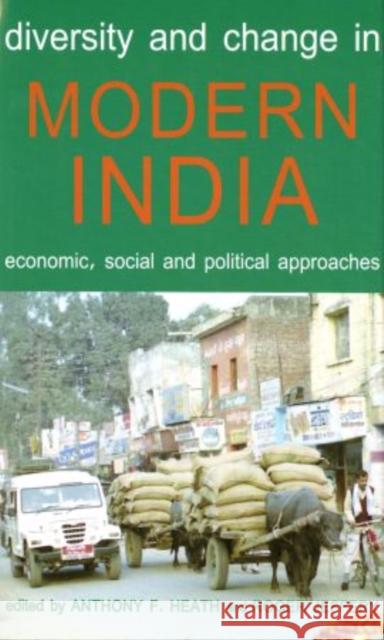Diversity and Change in Modern India: Economic, Social and Political Approaches » książka
Diversity and Change in Modern India: Economic, Social and Political Approaches
ISBN-13: 9780197264515 / Angielski / Twarda / 2010 / 280 str.
India's society, economy, and polity have been transformed at a gathering pace since the early 1990s, and India's growing role on the world stage makes it imperative to understand the roots and consequences of these changes. The 11 papers in this interdisciplinary volume review the growing body of data that help to make sense of these changes and to understand their likely significance.
The volume provides systematic, macro-level studies of economic, demographic, social, and political change in India but also micro-level analyses of the detailed mechanisms 'on the ground' of how Indian society is being re-shaped. This rare combination of micro- and macro-level analyses thus gives a rounded picture not only of national trends but also of the underlying processes of change.
Each of the papers, by leading authorities in each field, showcases the fruits of new, previously unpublished scholarship across the social sciences. For example, Oliver Heath and Yogendra Yadav's paper draws on the remarkable series of election studies from 1967 to 2004 to offer an original picture and analysis of electoral change as India moved from its post-independence to understanding the processes of change and diversity in modern India's period of Congress dominance to its contemporary much more diverse structure. By contrast, the paper by Patricia and Roger Jeffery draws upon intensive village-level fieldwork conducted across 25 years when social welfare services have been transformed under globalizing and liberalizing pressures. By bringing together such contrasting kinds of social science studies, the volume will be a major new contribution to understanding the processes of change and diversity in modern India.











